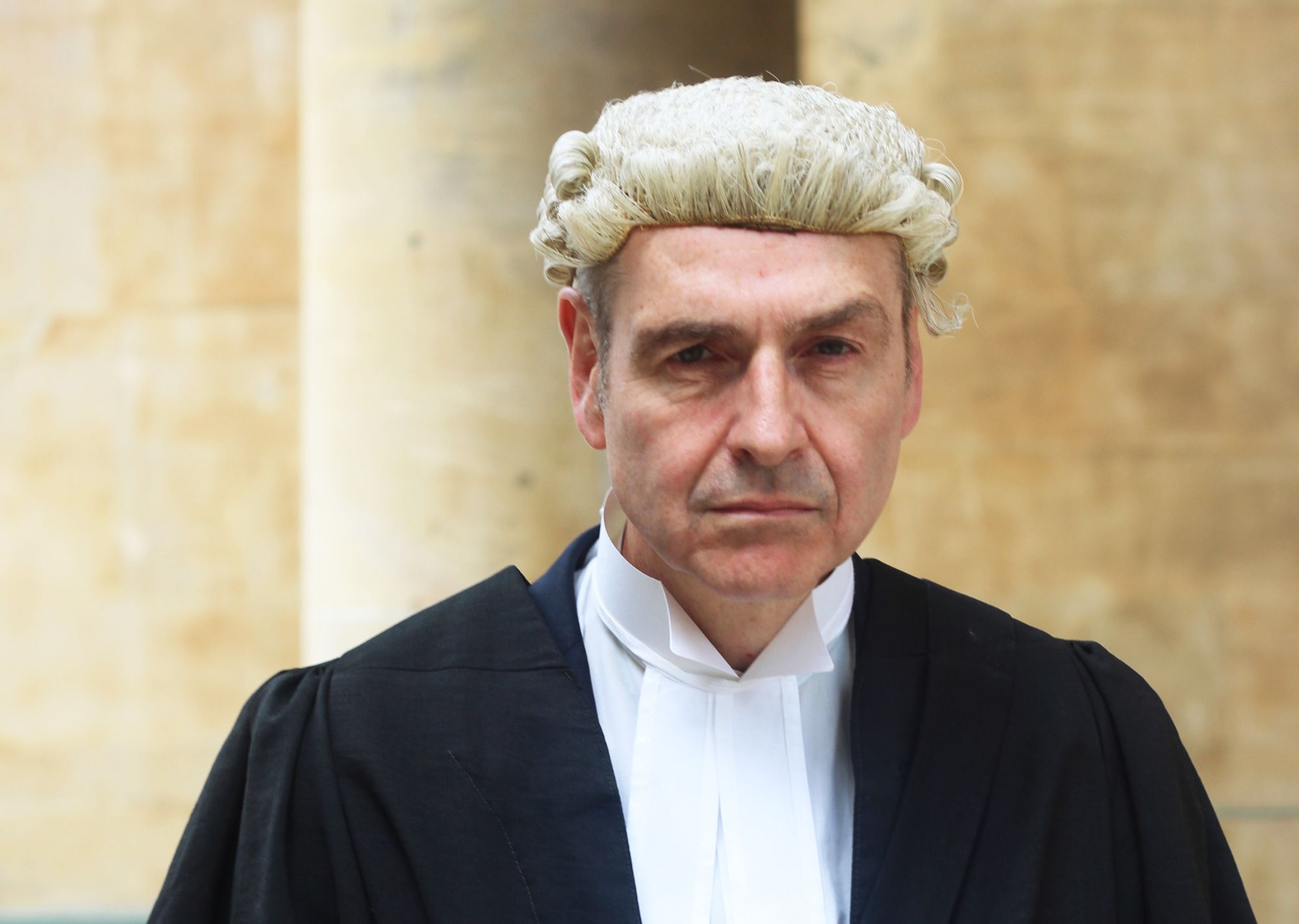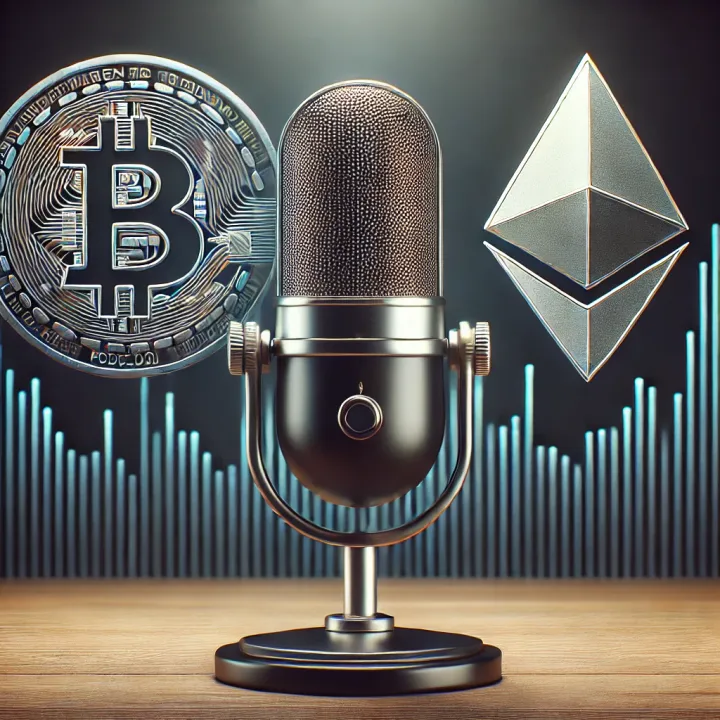Podcast: Bitcoin and Human Rights
"... In our new digital world, the only route to freedom is to defend your right to keep your secret keys safe..."

If you would like Paul Diamond to take your legal case, please go to his office contact page:
pauldiamond.com/contact
If you have any questions, comments, or suggestions - please contact Paul Diamond on Tela:
tela.app/id/paul_diamond
Join Tela Network and become a consultant:
telablog.com/how-to-use-tela-for-consulting
Vote for Tela Network on the Network State Dashboard:
telablog.com/vote-for-tela-network-on-the-network-state-dashboard

This article contains the script of Episode 8 of the Tela Network Podcast.
It is an abridged version of the earlier article "Paul Diamond LLM on Bitcoin, Human Rights, and Surveillance".

Watch on Youtube:
Watch on Rumble:
Listen on Spotify:
Podcast Script
Welcome to the Tela Network Podcast. My name is Paul Diamond, and I am a leading UK Barrister on Religious and Human Rights. I have appeared at every level in the national courts, including the House of Lords, as well as in the European Court of Human Rights in Strasbourg and the Court of Justice of the European Union in Luxembourg.
The topic of this short episode is "Bitcoin and Human Rights". It outlines my view of the need for privacy law to be extended to cryptocurrency.
If you would like to get in touch with me regarding a legal case, there will be a link to my office contact page in the description below. For more general questions, I am available on Tela. My Tela contact link will also be in the description.
The Loss of Privacy in the Digital Era
Most of us value our privacy. We don't want everyone, least of all our governments, to know all about our relationships, our friends, our intimate desires, or our financial transactions.
Most people today can sense the increasing interference with the right of privacy. This interference comes from corporations - who track your movements, meetings, habits, and purchases for the purposes of marketing their products - and from the state itself, which tracks you for the purposes of law enforcement.
The term 'human rights' is becoming less and less meaningful. The golden post-war era of freedom is now long past; more and more of us are becoming subject to a social credit system, whether we know it or not.
If you have the wrong opinion, social identity, or religious conviction, you can be deplatformed for the expression of your views. If a large enough group of people is stirred up against you online, and your employer can't take the media pressure, you could lose your job.
It is impossible to know what will be permissible to say tomorrow or in a few years' time - the rules are arbitrary and constantly change. Many people reason that it is best to say nothing.
The threat to free speech no longer comes from autocrats or despots, but from those who claim to speak for 'justice'. They appeal to our kindness: the values that we respect, such as freedom from hatred and freedom from prejudice. There can, they argue, be no equality in society if people are permitted to express bad ideas. So, if the speech is hateful, it is good to prevent that speech.
Most people think this is all entirely reasonable, until of course they encounter the thought police when someone else declares their speech to be hateful.
The Loss of Financial Freedom in the Digital Era
The reach of deplatforming has expanded - it can now affect your bank account.
A bank can and will close your account because they don't like your political views – this is called debanking.
You may not be very upset when someone that you don't like is debanked, but you probably would prefer not to be at risk of debanking yourself...
Some people think that the answer is to use cash as much as possible, and thereby keep yourself safe from tracking and from debanking. However, we are moving very quickly into a cashless society, so this will not be a viable approach for much longer. The push for cashless comes from many parties - the state, the corporations, and the customers. For all of them, cards are more convenient than cash.
Cryptocurrencies and Freedom
As cash disappears, an alternative is needed.
The emergence of cryptocurrencies offers a new potential future.
Bitcoin, the first and most famous cryptocurrency, is deeply attractive to those who want freedom: it allows direct transactions between individuals, is not controlled by the authorities, is not manipulated by private corporations, is not subject to devaluation, does not recognize borders, is universally available, and is relatively difficult to seize. It is precisely because of these qualities that governments will want to dissuade its use.
Other cryptocurrencies are less decentralized, more governed, more monitored, but still offer more protection to their users than a bank account does. A cryptocurrency is, in a sense, a modernized, up-to-date, internet-native bank, that offers programmable money and cryptographic guarantees to its users.
We need privacy and freedom. We need to be able to think and argue and discuss in order to deal with the world and its problems. This freedom is just as important in a developed liberal state as in an authoritarian country like China. Both there and here, cryptocurrencies will soon be the only real means to avoid the pressure of social conformity.

The Right to keep your Secret Keys safe
Are Bitcoin users completely safe from government overreach? No. Bitcoin is accessed via a 64-digit secret key. Like a secret Swiss bank account, the secret key is all that is needed to have control over your account. The secret key can be seized via a photograph and the funds can thereby be taken from your account. In a surveillance-driven world, protecting your secret keys from cameras is a real problem.
In the digital age the police are becomingly increasingly skilled at seizing computers, phones, and electronic devices, in order to then search diligently through the devices for incriminating information. If they find your secret keys and take the funds, will you have any real recourse?
The only solution is to defend a citizen's right to privacy – their right to prevent the police searching their property at will.
Privacy rights are protected by human rights treaties; in Europe this is Article 8 of the European Convention on Human Rights. Further, a secret key is likely to be a property right (within Article 1 of the First Protocol of the European Convention on Human Rights). The state has positive duties to secure the benefit of human rights and a negative duty not to violate them.
The right to privacy is a very underdeveloped right because, until the modern technical age, there was previously no need to protect it to this degree. The scale of the potential intrusion is now so significant that this right needs to be developed to handle the conditions of the modern era. For example, a photograph of your secret key should be treated as a violation of a privacy right.
To prevent police seizure of your secret keys, whether purposely or recklessly, a statutory tort should be introduced by Parliament creating a mechanism for damages. Alternatively, the common law should develop to this end.
In our new digital world, the only route to freedom is to defend your right to keep your secret keys safe.
That's the end of this episode. I hope you enjoyed it. Thank you for listening.
A brief reminder: If you would like to get in touch with me regarding a legal case, there will be a link to my office contact page in the description below. For more general questions, I am available on Tela. My Tela contact link will also be in the description.
Thank you.
Podcast Description
"... In our new digital world, the only route to freedom is to defend your right to keep your secret keys safe..."
This is Episode 8 of the Tela Network Podcast, hosted by Paul Diamond.
If you would like Paul Diamond to take your legal case, please go to his office contact page:
https://pauldiamond.com/contact
Contact Paul Diamond on Tela:
https://tela.app/id/paul_diamond
Read this content as an article:
https://telablog.com/podcast-bitcoin-and-human-rights
Guide: How to use Tela for consulting:
https://telablog.com/how-to-use-tela-for-consulting
Listen on Spotify:
https://open.spotify.com/episode/003y85ksHEKoyFwkFLa2BI?si=bv3VAr6KT-y8QvEV8jK3HA
If you have any questions about Tela Network - please contact StJohn Piano:
tela.app/id/stjohn_piano/7c51a6
Join Tela Network and become a consultant:
telablog.com/how-to-use-tela-for-consulting
Vote for Tela Network on the Network State Dashboard:
telablog.com/vote-for-tela-network-on-the-network-state-dashboard
Follow Tela Network on LinkedIn:
linkedin.com/company/tela-network
Follow Tela Network on Twitter:
twitter.com/tela_updates
Join the Tela Social channel on Telegram to get every new update:
t.me/tela_social
Follow Tela Network on Instagram:
instagram.com/tela_updates
Invest in Tela:
tela.network/invest
Subscribe to the Tela Network Podcast:
youtube.com/@TelaNetworkPodcast



